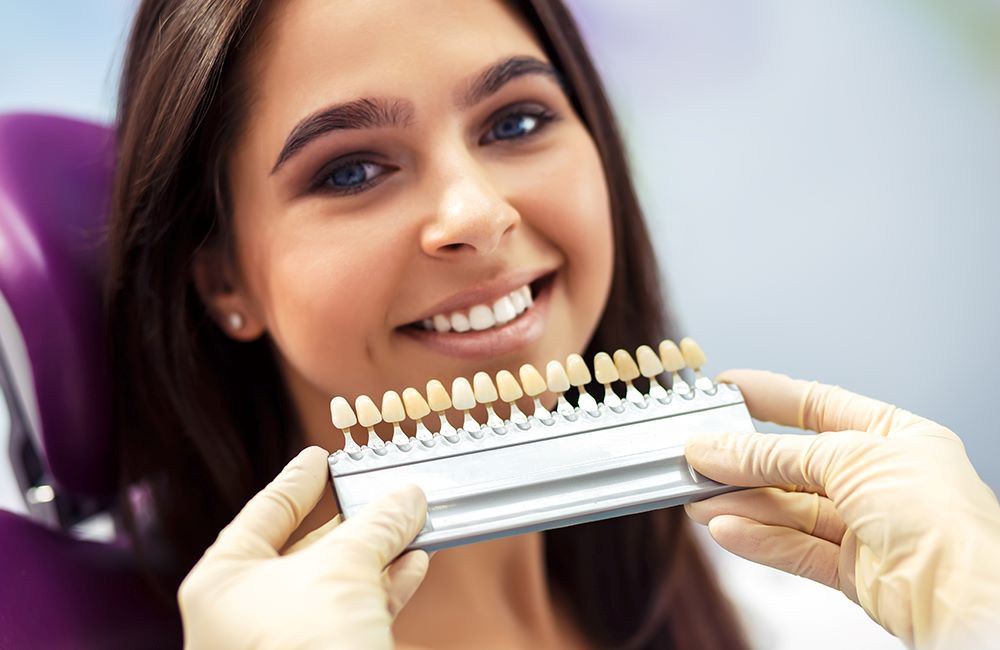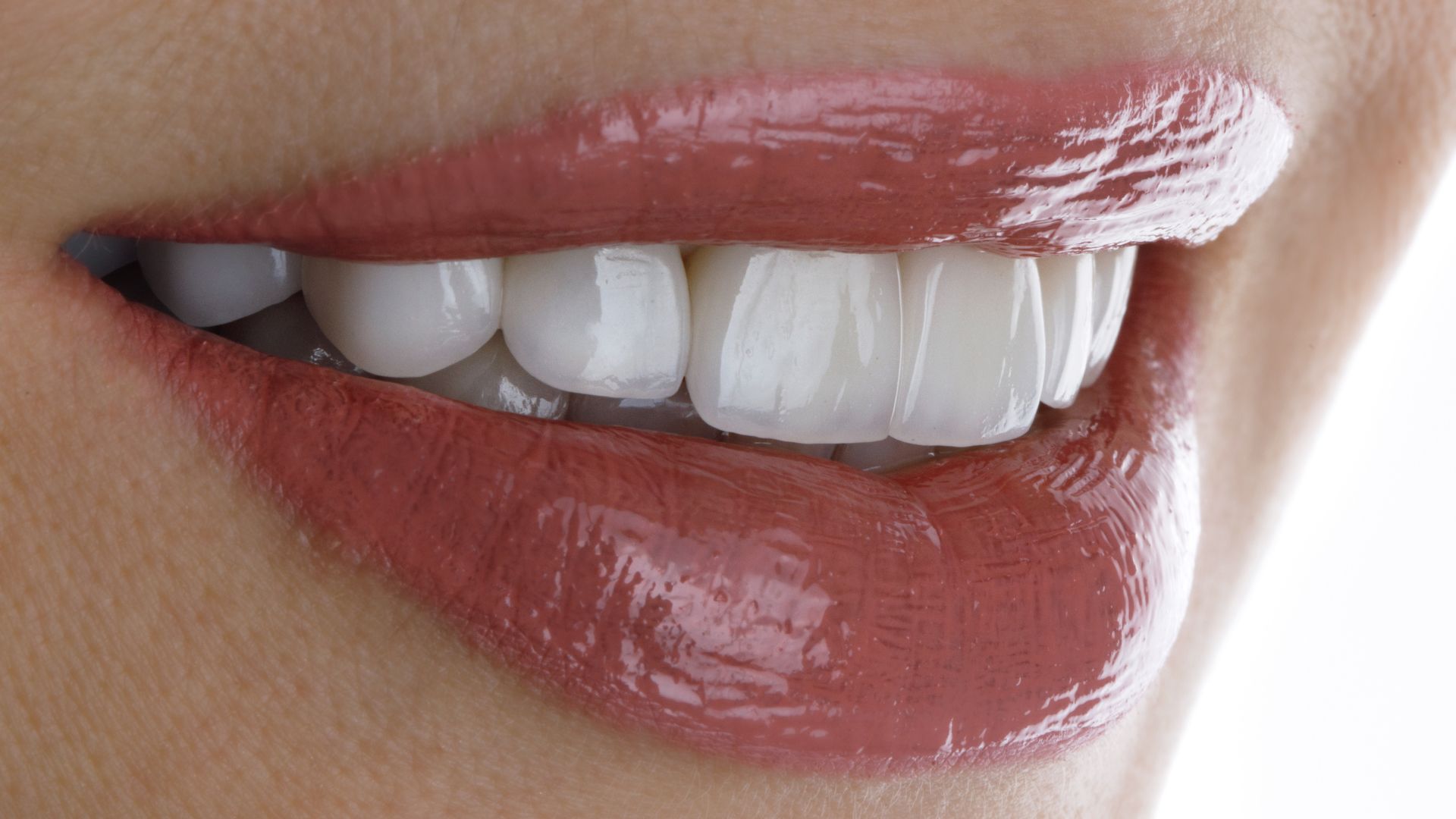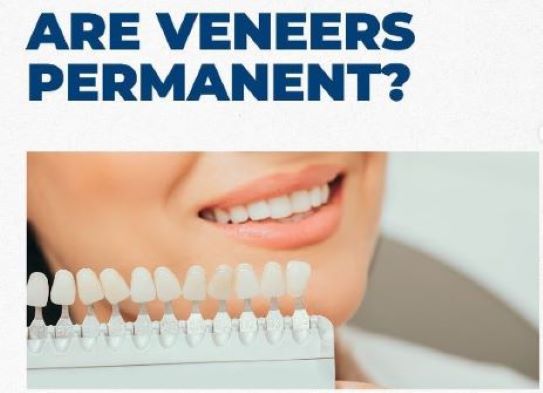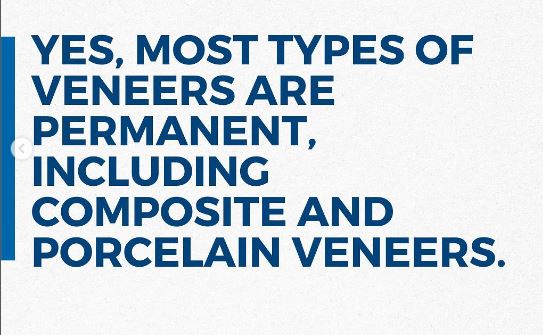Laminate Veneers Teeth in Turkey
What are laminate veneers teeth in Turkey?
Laminate veneers are tiny, individually produced shells used to cover the front of teeth. They are usually attached to the teeth using a powerful dental glue and are normally constructed of porcelain or composite resin materials. Laminate veneers are frequently used as dental cosmetics to make teeth look better. Veneers can be used to conceal stains and discolouration that tooth whitening procedures are unable to eliminate. Broken or chipped teeth can have their appearance improved with the use of veneers. By hiding gaps or crooked teeth, veneers can give a smile a more equal and consistent appearance.
Which circumstances call for laminate veneers?
The following are situations when applying laminate teeth is either not possible or requires specific precautions and procedures. People typically believe that the physiological process of jawbone growth ends when an individual reaches the age of 18. In certain rare cases, the patient's bones may be sufficiently matured even if they are under the age of 18. To determine whether or not the jawbone has formed, the dentist's examinations and the procedures that need the use of specialised imaging equipment will undoubtedly be utilised.

- Circumstances in which laminate dental treatment is not appropriate due to tooth crowding
- Circumstances where adhesion won't be enough
- Severe clenching and grinding of the teeth
- Teeth that have not fully developed or have not yet fully erupted
- Existence of gum conditions
- If the tooth's rear side needs to be laminated but is damaged
Please click here to get more info!

What are benefits and disadvantages of laminate veneers teeth?
Laminate veneers are a well-liked cosmetic dentistry treatment for whitened teeth. Before selecting if laminate veneers are the best solution for your particular situation, weigh the benefits and drawbacks of any dental procedure. The advantages and disadvantages of laminate veneers are as follows:
Benefits:
- Laminate veneers can make teeth look better by hiding stains, discolorations, and other flaws, resulting in a stunning and natural-looking outcome.
- Laminate veneers are made of sturdy, long-lasting materials that, with the right upkeep and care, can last for many years.
- A number of dental problems, such as chipping, cracking, or gaps between teeth, can be treated with laminate veneers.
- Laminated veneer placement is a minimally invasive technique with little to no recovery time.
- Why Because laminate veneers don't require as much dental preparation as other restorations, the natural tooth structure is preserved.
Disadvantages:
- The cost of laminate veneers may be more than that of other cosmetic dental procedures, which may be prohibitive for certain individuals.
- Following the procedure, some patients may suffer brief sensitivity or discomfort, which can be treated with over-the-counter painkillers.
- For laminate veneers to last a long time, good oral hygiene practices and routine dental exams are necessary.
- Laminate veneers are resistant to wear and fracture, although they might not be as robust as genuine teeth.
- The process of preparing teeth for laminate veneers is irreversible, which means the original teeth may undergo permanent change.
Laminate veneers are a flexible and long-lasting solution for enhancing the look of the teeth and generating a radiant, natural-looking smile. However, it is critical to thoroughly weigh the benefits and drawbacks before deciding whether laminate veneers are the best solution for your particular situation. You should also speak with a trained and experienced cosmetic dentist.
What should I do before laminate veneers?
Prior to getting a laminate veneer, there are a few important dos and don'ts. Here are some recommendations:
You should do:
- Set up an appointment with a dentist or prosthodontist
- Brush your teeth at least twice a day and floss at least once a day to maintain proper oral hygiene habits.
- Consider scheduling a professional cleaning before getting veneers.
You should not do:
- Refrain from getting veneers right away after any teeth-whitening procedures.
- Prior to getting veneers, it is best to have any essential dental work, such as fillings or root canals, completed.
- Inform your dentist if you grind or clench your teeth on a regular basis (bruxism).
Please click here to get more info!
How is laminate veneers treatment done?
The laminate veneers process involves a few steps and requires some visits to the dentist. Here is a general overview of how the laminate veneers treatment is performed:
- Making an appointment for a consultation with a prosthodontist or dentist with experience in cosmetic dentistry is the first step.
- The dentist will create a personalised treatment plan if veneers are determined to be the best option for you.
- In most situations, the front surface of the teeth getting veneers has a small portion of dental enamel (between 0.5 and 1.0 millimetres) meticulously removed.
- Temporary veneers may be applied to preserve the prepared teeth and preserve aesthetics while the permanent veneers are being made in the dental laboratory, depending on the degree of tooth preparation.
- When the permanent veneers are prepared, the bonding process will require you to visit the dentist again. Before the final bonding, adjustments can be made as needed.
- The dentist will make any necessary final modifications to guarantee a comfortable bite and ideal looks after the veneers are glued.
- In order to assess the veneers' fit and functionality, the dentist could arrange a follow-up consultation.
Please click here to get more info!
What should I do after laminate veneers treatments?
Laminated teeth's durability can be impacted by a variety of variables. The different factors that affect how long laminated teeth last are listed below.
- After laminated teeth have been positioned, teeth grinding may harm them. In order to protect the laminate veneer, people who clench and grind their teeth at night should use sleep guards.
- Placing and holding objects like pencils and buckles in the mouth can hurt both healthy teeth and laminated teeth. It is necessary to cease this behavior.
- Refrain from breaking apart meals with hard shells with your teeth. Eaten with additional caution, fruits with rough seeds should be avoided.
- Some people could pry open drink can lids with their teeth. However, it should be kept in mind that this procedure can damage laminated teeth, especially the anterior teeth.
- Even if it is firmly adhered, it should be noted that substances with adhesion and creep properties, such as chewing gum and putty, could occasionally damage the veneer and weaken it.
- Extremely acidic foods and beverages can damage the medical adhesive. Despite the fact that this scenario happens regularly, it is still crucial to use cautious.
- Make it a habit to clean your teeth twice daily with a gentle brush, to use dental floss, and to use mouthwash.
- It's important to maintain regular dental checkups every six months.
FREQUENTLY ASKED QUESTIONS
How much does laminate veneers cost in Turkey?
The price of laminate veneers for teeth varies in Turkey depending on a variety of variables, including the quantity of veneers required, the kind of material used, and the dentist's training and expertise. However, compared to many other nations, such as the US and the UK, the price of laminate veneers for teeth is typically lower in Turkey. Depending on the aforementioned variables, the average cost of laminate veneers for teeth in Turkey might range from $300 to $800 per tooth. This is substantially less expensive than veneers in other nations, where they can cost between $800 and $2,500 per tooth. The price of veneers may also include other costs like dental exams, X-rays, and temporary veneers, so it's crucial to keep that in mind. To receive an accurate price quote based on your unique case, it is advised to speak with multiple certified and competent cosmetic dentists in Turkey.
Does laminate veneers treatment hurt?
Laminate veneer procedures are generally not thought to be painful. Most patients say they are hardly at all sensitive or uncomfortable throughout the procedure.
Please click here to get more info!
Are laminate veneers worth it?

The value of the laminate veneers operation for your teeth will depend on your particular situation, objectives, and financial situation. By hiding stains, discolouration, and other flaws in the teeth, laminate veneers can produce a stunning and natural-looking result, giving the smile a more uniform appearance. They can also be applied to other dental problems including gaps or chipped teeth. However, it's crucial to carefully weigh the benefits and drawbacks of laminate veneers and speak with a skilled cosmetic dentist to decide if they're the best solution for your particular situation. Furthermore, even if laminate veneer prices may be lower in Turkey than in other nations, it's still vital to take other costs like travel and lodging into account when calculating the whole cost. For those seeking to enhance the look of their teeth and attain a more attractive and confident smile, laminate veneers may be a wise investment; nevertheless, before making a choice, it is crucial to thoroughly weigh the potential advantages and expenses.
How long do laminate veneers last?




The average lifespan of laminate veneers is 10 to 15 years, but if they get damaged or lose their ideal appearance, they may need to be replaced sooner. If you maintain and clean your teeth on a regular basis, laminate veneers can last a very long period. Maintaining good oral hygiene practices, such as regular brushing, flossing, and trips to the dentist for cleanings and inspections, will help your veneers last longer.
Please click here to get more info!
How many sessions does the laminated teeth veneer process take?
The quantity of veneers needed and the complexity of the case are two variables that may affect how many sessions are needed for the laminate veneers teeth treatment. But the full procedure usually requires two or three dental appointments.
Please click here to get more info!
Can laminate veneers teeth fall?
Due to the strength and durability of the dental adhesive used to affix the laminate veneer to the tooth, it is uncommon for a correctly applied laminate veneer to come off. A veneer could, however, occasionally come loose or fall off for a variety of reasons, including trauma or decay underneath the veneer.
Please click here to get more info!
Does insurance cover the laminate veneers teeth?
Insurance coverage for laminate veneers can vary depending on the specific terms and coverage of your dental insurance plan. Here are some important points to consider regarding insurance coverage for laminate veneers:
- Dental insurance plans typically classify procedures as either cosmetic or restorative. Laminate veneers are primarily considered a cosmetic procedure, as they are primarily done to improve the appearance of the teeth rather than to address a functional or health concern. Insurance coverage for cosmetic procedures is generally limited or may not be covered at all.
- Before undergoing any dental procedure, including laminate veneers, it's important to check with your insurance provider to determine if pre-authorization is required. This involves submitting a treatment plan to the insurance company for approval and confirmation of coverage.
- Even if your dental insurance plan covers cosmetic procedures, there may be limitations or restrictions on the extent of coverage. For example, insurance plans may have a waiting period before covering cosmetic procedures or may only cover a portion of the cost. It's important to review your plan's coverage details to understand any limitations or exclusions.
- : In some cases, dental insurance plans may provide coverage for alternative treatments that are deemed medically necessary. For instance, if the laminate veneers are required to restore damaged or decayed teeth, your insurance may cover the cost under restorative procedures. However, if the primary purpose is solely cosmetic, coverage may be limited.
- It's important to be aware that even if your dental insurance plan provides coverage for laminate veneers, you may still have out-of-pocket expenses. This can include deductibles, co-pays, or costs associated with any additional procedures or treatments required alongside the veneers.
To understand the specific coverage details of your dental insurance plan for laminate veneers, it is recommended to contact your insurance provider directly. They can provide you with accurate information regarding the extent of coverage, any limitations or exclusions, and an estimation of your out-of-pocket costs. Additionally, consulting with your dentist or a dental professional can help you navigate the insurance process and provide guidance on available treatment options and costs.
When will I call dentist after laminate veneers treatment?
It's crucial to adhere to your dentist's recommendations for post-treatment care and follow-up consultations after receiving laminate veneers treatment. Typically, a week or two after the implantation of the veneers is the standard time frame for scheduling a follow-up appointment with your dentist. It's crucial to remember that the precise timing may change depending on your unique situation and your dentist's advice.
Your dentist will examine the veneers' placement, evaluate your dental health, and address any concerns or problems you may have at the follow-up appointment. They'll make sure the veneers are appropriately positioned, are operating normally, and satisfy your aesthetic requirements. During this appointment, the dentist can make any alterations or revisions required to improve the veneers' fit, comfort, and appearance.
In addition to the predetermined follow-up appointment, it's crucial to get in touch with your dentist right away if you have any unanticipated problems or worries after having laminate veneers installed. This can apply to any issues with the veneers themselves, including as discomfort or sensitivity.
The longevity and general health of your laminate veneers depend on you practicing appropriate oral hygiene habits, such as routine brushing, flossing, and dental checkups and cleanings. To ensure the longevity and ideal appearance of your veneers, your dentist will provide you instructions on how to properly maintain them.
